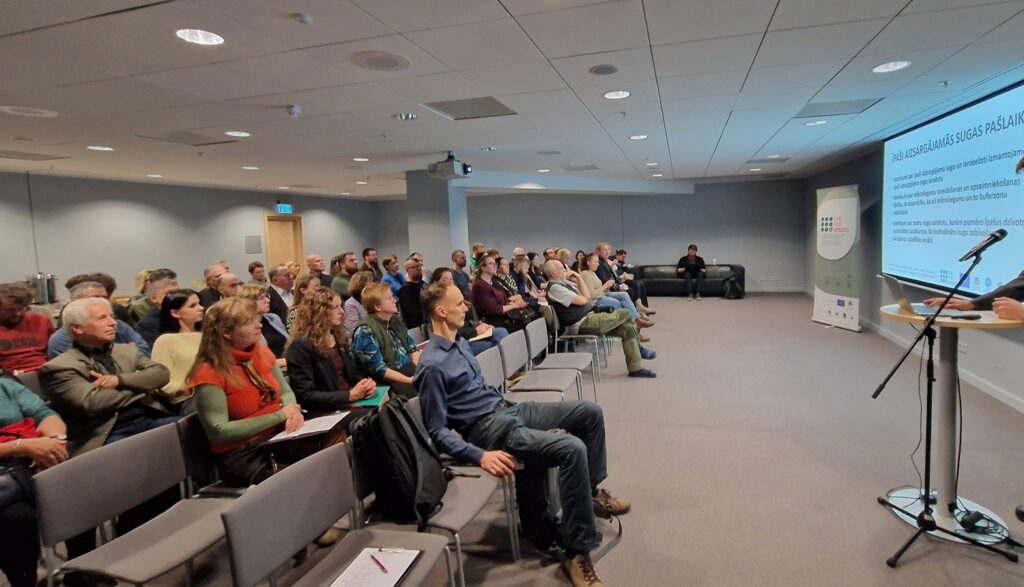Expert Seminar on Bird Conservation Issues Concluded
On February 27, more than 70 nature conservation specialists convened at the National Library of Latvia for a seminar on bird conservation issues, organized by the Nature Conservation Agency (NCA) under the LIFE FOR SPECIES project.

The seminar was held to enhance the knowledge and unify the understanding of bird conservation issues among certified bird conservation experts and specialists from state institutions responsible for nature conservation, and to promote mutual cooperation. Gita Strode, the director of the Nature Conservation Department at the NCA, discussed setting priorities for planning and implementing conservation and management measures for specially protected natural areas. Meanwhile, NCA's Kurzeme Regional Administration expert, Kristaps Vilks, initiated a discussion on solutions for improving the quality of expert opinions. Anete Pošiva-Bunkovska and Gaidis Grandāns (SIA ELLE) introduced the upcoming guidelines for assessing the impact of forest roads and forest drainage systems, commissioned by the NCA.
To improve the process of creating microhabitats for forest-nesting birds, Daina Liepiņa, a representative of the State Forest Service's Forest and Environmental Protection Department, and Jānis Ķuze, a bird expert from the Latvian Nature Fund, shared their experiences and challenges in the microhabitat creation process, from field surveys to decision-making. Pēteris Daknis, a bird expert from the NCA's LIFE REEF project and the Latvian Ornithological Society, presented the results of an owl telemetry study, emphasizing the need for longer seasonal restrictions for the management of young forests in microhabitats and buffer zones created for owl protection.
Monitoring results play a significant role in planning bird conservation measures and assessing impacts. Therefore, Andris Avotiņš, an expert from the Latvian Ornithological Society and the LIFE FOR SPECIES project, introduced the raptor monitoring system and its results. Jānis Donis from the Latvian State Forest Research Institute Silava presented the latest analysis results on the impact of economic activities on the nesting success of the black stork. Monitoring results were also significant in the LIFE FOR SPECIES project's proposal for revising the list of protected species, presented to seminar participants by Viesturs Ķerus, a representative of the Latvian Ornithological Society. In the continuation of the seminar, Agnese Balandiņa, manager of the NCA's Ķemeri National Park Nature Center, initiated a discussion on the increasing impact of active recreation and tourism on the values of specially protected natural areas, including birds nesting in bogs.
